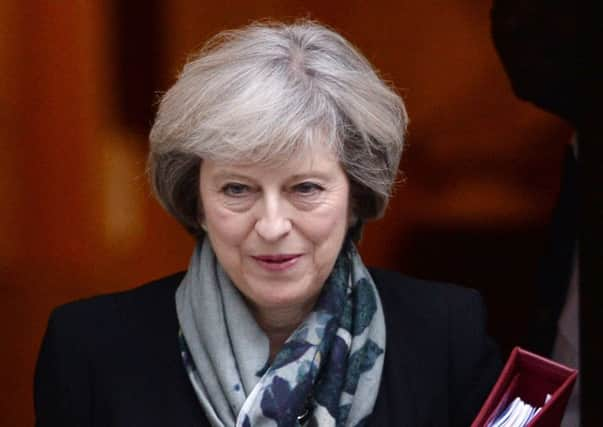John Pedler: Referendum was not binding so MPs can still block Brexit


As predicted before his election, populist Donald Trump, as President Elect of the United States, is causing a political earthquake across the world. His opponent, Hillary Clinton. won the popular vote though losing the Electoral College, and the United Kingdom’s referendum to keep the UK in the European Union was only narrowly lost: 51.89 per cent to 48.11 per cent. Keep America white, explained Trump’s victory. Keep Britain for the British, explained the victory for ‘leave’.
Trump’s unpredictability, his ignorance of foreign affairs and proposed foreign policies bring profound uncertainties for the West – indeed for most of the world. So it is of paramount importance that the European Union be as strong as possible. And that means that neither the UK nor the EU can afford to be weakened by Brexit – and the EU must not unravel, as is possible, because of Britain’s departure. Indeed the EU now has to play a greater role on the world scene to counter increased international risks – notably the threat from Russia’s President Vladimir Putin.
Advertisement
Hide AdAdvertisement
Hide AdThe 3 November judgment of the UK’s High Court, likely to be upheld by the Supreme Court in December, opens the road to avoiding Brexit. All that is needed now is for Parliament to vote against invoking Article 50 (so irrevocably initiating the leave process) and in favour of the UK remaining a parliamentary democracy – the High Court ruled against the government of the day having the right to introduce populist demands when making decisions against Parliament’s will. As some 480 of the 650 members of the House of Commons voted in favour of the UK remaining in the EU, there should be no doubt of the outcome – Brexit would be avoided and the UK continue with Parliament supreme.
But amazingly only one or possibly two MPs have yet come out against Brexit – despite a host of reports about the disadvantages of Brexit and the confusion about what Theresa May seeks. But what the UK gets is in the gift of the EU Commission which wants to deter further ‘leavers’.
This was a non-binding advisory referendum – all a government need do after considering the campaign is to act in the best interests of the UK. And avoiding Brexit is in the clear interest of the UK as a whole – particularly of Scotland which voted against leaving the EU. Scotland’s First Minister Nicola Sturgeon could, if she wished, stop the invocation of Article 50 as the price of saving the Union.
But many MPs represent constituencies which voted ‘Leave’ – and they want to be re-elected. If a general election is delayed to 2020, as Mrs May has announced, there is no need for concern. There is also fear of a furious reaction from those who want ‘leave’ though their grievances are often less against the EU than against governments, both Labour and Conservative, for ignoring their hardships as losers from globalisation - as in the US. Another reason is the strong, though mistaken conviction that opposition to Brexit would be to flout democracy - no matter how slim the majority for ‘leave’. The Economist’s research suggests that, three months after the referendum, there is now a majority for ‘remain’ and so Mrs May’s claim to represent ‘the clear will of the British people’ is no longer valid.
Another factor has been the lack of an effective parliamentary opposition to government - the collapse of the Labour Party after the referendum. But now Jeremy Corbyn is leader and he is calling on the party vigorously to challenge Mrs May over Brexit. And many Labour MPs believe it is on opposing the Conservative government’s Brexit plans that the party’s resurrection depends. But there is still that deep reluctance to lead in opposing Brexit itself.
A further reason is the UK media, press and TV, were and still are, for ‘leave’ – notably the influential Daily Telegraph whose leading correspondent, Boris Johnson, is, thanks to television (like Trump), the best known Brexiteer. In the search for readership the colourful and questionable ‘leave’ campaign brought far better copy than the ill-conducted, humdrum servings of ‘remain’.
The trusted BBC – the UK’s media leader - is concerned about the Conservative government’s threat to the BBC’s mandatory licence fee (shortly to be reviewed). That discourages opposition to the Prime Minister’s Brexit.
So the electorate was both deceived by ‘leave’ and deprived of information about the most important reasons to ‘remain’ - it is still all but impossible to publish anything opposing Brexit in England so this is appearing in Scotland.
Advertisement
Hide AdAdvertisement
Hide AdThere is therefore an immense amount of publicity to be done in a very short time if politicians, the public, and the media - UK, EU, and international - are to awaken to Britain’s predicament.
After this American election result, no MP or member of the House of Lords should be left unaware of the UK’s and the EU’s now vital interest in avoiding Brexit. As for Putin, he is acting against Russia’s true national interest. The EU should aim at bypassing his bellicosity by working for all-Europe solidarity which well informed Russians well know is what Russia most needs. That is Putin’s Achilles heel.
By avoiding Brexit a strong Europe is not impossible: a Europe that can pursue Western interests making up, with as many allies as it can find, for an unpredictable, even unhelpful, United States no longer able effectively to lead the free world. The most important challenge for mankind is climate change which Trump still denies: here the EU must bond with the entire world, particularly China.
Only a far more united Europe, working with the international community, can mitigate the damage caused by that Trump earthquake.
John Pedler is a former British diplomat who served in Europe and the Far East. Since 2014 he has worked almost exclusively on the EU referendum